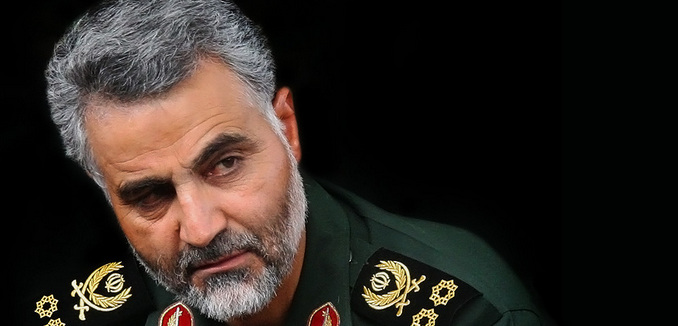Iranian Major General Qassem Soleimani, the leader of the Islamic Republic’s Quds Force, is in Baghdad to push for the formation of a new Iraqi government favorable to Iran’s interests.
Reuters reported on Wednesday that Soleimani had arrived in Iraq on Saturday, the day of the parliamentary election. The unexpectedly poor results of Haider al-Abadi, Iraq’s prime minister, has dealt a blow to U.S. interests in the country, leaving Iraq vulnerable to Iranian interference.
The two major winners of the election – the bloc of cleric Muqtada al-Sadr and the Fatih (“Conquest”) coalition led by Badr Corps head Hadi al-Ameri – want to see the U.S. expelled from Iraq immediately. Asa’ib Ahl al-Haq, an Iranian-backed militia responsible for the murder of U.S. servicemen in Iraq, also scored well in the elections.
Soleimani’s Quds Force is the main foreign backer of Amiri’s Badr group, which served as the military backbone of Al-Hashd Al-Sha’abi, an umbrella organization comprised of roughly 140,000 Shiite fighters.
The pro-Iranian bloc is only four seats away from forming a pro-Iran coalition without Sadr, a cleric who won on a populist ticket with a strong anti-American rhetoric and problematic relationship with Iran.
In an attempt to counter Sadr’s influence, General Qassem Soleimani is working to form an anti-U.S., pro-Iran coalition among the Shiite parties. Iran is unlikely to relinquish influence in Iraq, its most important ally in the Middle East.
Despite being under a United Nations travel ban for his support of terrorism, Soleimani appears to move freely throughout the Middle East.
“Iran will do everything in its power to remain strong in Iraq and to apply pressure,” said independent Iraqi analyst Wathiq al-Hashimi. “It’s a very critical situation.” To influence the outcome of the election, Soleimani will either try to form a marriage of convenience with Sadr’s organization or marginalize Sadr. The cleric has accepted Iranian patronage in the past.
Before the election, Iran publicly stated that it would not allow Sadr’s bloc to govern, raising concerns over Iranian manipulation of Iraq’s democratic election process.
According to the Iraqi Electoral Commission, turnout was low with only 44% of eligible voters making it to the polling booths on Saturday. It was the first election in Iraq since the defeat of the terrorist group ISIS.
Just as Iran is positioning itself to control Iraq politically, it also appears to be maneuvering itself to have significant influence in Syria. According to Iran’s official Islamic Republic News Agency Syrian Minister of Economy and Foreign Trade Samer al-Khalil told an Iranian counterpart that he wants Iran to be a partner in Syria’s reconstruction.
[Photo: sayyed shahab-o- din vajedi / WikiCommons]




